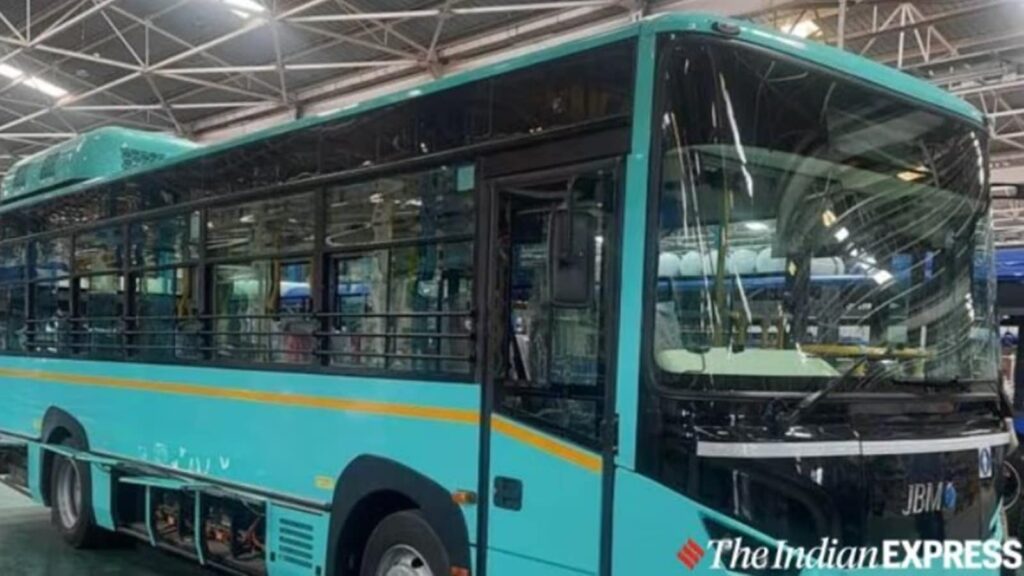Ever since electric buses were introduced to the fleet of Bengaluru Metropolitan Transport Corporation (BMTC) under the Gross Cost Contract (GCC) model in 2023, the transport body has been plagued with multiple complaints against private operators running these buses.
Developments such as accidents allegedly caused by inadequately trained electric bus drivers to breakdowns in the middle of the road, the state government contends, are tarnishing the image of the public service provider. To add to the woes, the Centre has announced 4,500 additional buses to BMTC under the same model, raising concerns.
What are the complaints against buses sanctioned under GCC?
A 20-fold increase—2,037 per cent—in breakdowns of electric buses due to battery performance in the first six months of 2025-26, compared to 2024-25, has set off alarm bells at the BMTC over the quality of buses being operated. According to BMTC data, between April and September this year, there were 13,326 breakdowns due to battery performance, whereas the entire 2024-25 fiscal saw just 654.
A total of 1,652 electric buses are being operated by four GCC operators under BMTC.
One of the most notable electric bus breakdowns occurred on October 14 near RMZ Ecospace Tech Park, which caused a traffic jam on the busy Outer Ring Road for more than two hours. In contrast, BMTC’s 5,423 independently operated diesel buses only reported 17 breakdowns between April and September this year. In 2024-25, the total number of breakdowns was 68.
The number of accidents caused by the electric buses has also surged, and is being attributed to drivers who lack structured and rigorous driver training. Data shows that six accidents took place in 2023-24 (during the early stages of inducting electric buses), of which three were fatal. The next year, in 2024-25, the number grew to 29 accidents with 11 fatalities. Signs are that the accident numbers could surge more than two-fold in 2025-26, as 35 accidents—of which 10 were fatal—have already been reported in the first six months of this fiscal.
Drunk and rash driving is another concern, with 626 complaints being registered against electric bus drivers. Apart from this, 15 strikes by drivers of these buses since February last year, over reasons such as salary and Deepavali bonus, have also caused financial loss to the BMTC.
Story continues below this ad
“All these are BMTC-branded buses. Such incidents cause a wrong perception about BMTC among the people,” Ramalinga Reddy, Transport Minister, said.
What is the GCC model? Who operates these buses?
In the model being implemented under central schemes such as Faster Adoption and Manufacturing of (Hybrid &) Electric Vehicles in India – Phase II and Smart City Project, private companies provide electric buses to BMTC. The transport body provides private operators a fixed cost for operating the buses and conductors, while the private operators are responsible for providing the buses, drivers and maintenance of the vehicles.
Currently, four companies are responsible for the 1,652 electric buses included in the BMTC fleet—NTPC Vidyut Vyapar Nigam (90 buses), Switch Mobility Automotive Limited (300 buses), TML Smart City Mobility Solutions (1,031 buses) and OHM Global Mobility Private Limited (251 buses). While an agreement for buses was signed in 2021, the electric buses started hitting the roads in January 2023. The companies will run the buses for 12 years.
How is BMTC tackling the problem?
Apart from levying fines on these operators over lack of efficiency, minister Reddy has written to the Union Minister for Heavy Industries and Steel, H D Kumaraswamy, to “initiate a performance review of all GCC operators”, introduce clauses in tender documents “mandating comprehensive and certified driver training protocols” and to “institute a compliance monitoring mechanism” to ensure adherence to safety and service benchmarks. By bringing these flaws to the attention of the Union government, “we are trying to make sure that buses sanctioned to BMTC in the future will not have the same problem,” he said.
Story continues below this ad
Sivakumar K B, Managing Director, BMTC, said that a meeting was held recently with the operators. “They have agreed to upgrade batteries in a certain number of buses… We are also monitoring new batteries of these buses,” he said, adding that an extra penalty will be levied if sudden strikes cause losses to BMTC due to trip cancellations. “Operational efficiency of the batteries used in the buses should have reduced after four years of use. But the efficiency has fallen quickly, decreasing the number of kilometres travelled by these buses daily,” he added.

